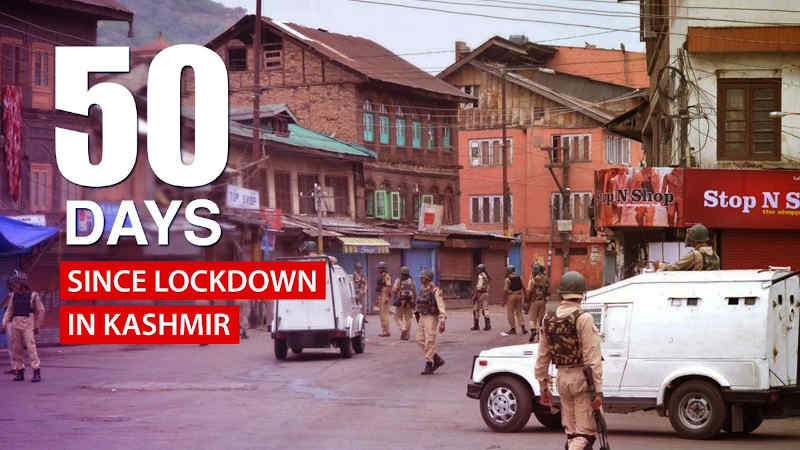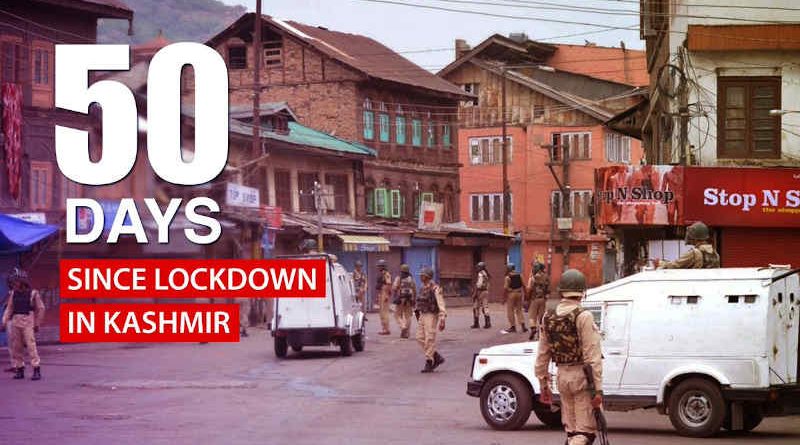Human Rights Watch Reports Extrajudicial Killings in Kashmir

A global human rights organization has raised serious concerns over new reports of extrajudicial killings by the Indian security forces in Kashmir, which is a disputed territory between India and Pakistan.
In its latest report released Friday, Human Rights Watch (HRW) said that the Indian authorities should immediately order an independent, impartial investigation into the killings by security forces of three people in July 2020 in Jammu and Kashmir (J&K) region.
The army claims that the three were militants and were killed in a retaliatory gunfight after they fired on the security forces during a search operation on July 18 in Shopian district, and were then buried in Baramulla district.
But their families in Jammu, who identified them from photographs of the killings circulated on social media, said they were laborers who had gone in search of work. Following demands from political parties for an inquiry, on August 10, the army said it will investigate.
[ Human Rights Situation “Alarming” in Kashmir: UN Experts ]
“Security forces have long operated with impunity in Kashmir, and past army investigations have been more focused on shielding those responsible for abuse than providing justice,” said Meenakshi Ganguly, South Asia director at Human Rights Watch. “There can be no end to the cycle of violence in Kashmir if security forces are not held accountable for their past and current abuses.”
The families of those killed identified them and said they last had contact with them on July 17, after they reached Shopian to look for work. The families assumed they may have been quarantined when they could not get in touch after that. They identified their relatives from the photos uploaded on social media of those killed in the Shopian armed encounter and have since filed a missing person report at the police station. The police have said they are also investigating the killings.
[ Islamic Nations Ask India to Stop Human Rights Abuses in Kashmir ]
Any army investigation into the recent killings will be meaningless, Human Rights Watch said, because the Armed Forces (Special Powers) Act (AFSPA) gives the security forces effective immunity from prosecution for serious human rights abuses. It grants the military wide powers to arrest, shoot to kill, and occupy or destroy property in counterinsurgency operations.
Since the law came into force in Jammu and Kashmir in 1990, the Indian government has not granted permission to prosecute any security force personnel in civilian courts. Human Rights Watch and others have long documented how the law has become a tool of state abuse, oppression, and discrimination, and called for its repeal. Affected residents, activists, government-appointed committees, politicians, and United Nations human rights bodies have criticized the law.
[ India Is the Fountainhead of Terrorism in the Region: Pakistan ]
Indian officials claim that troops need such powers because the army is only deployed when national security is at serious risk from armed groups. However, the Supreme Court has said that all killings by security forces should be investigated and that such force was not permissible “even in an area declared as a disturbed area under AFSPA and against militants, insurgents, and terrorists.”
India: New Reports of Extrajudicial Killings in Kashmir https://t.co/EdnRsKWyy1
— Human Rights Watch (@hrw) August 14, 2020
According to Human Rights Watch (HRW), there have been numerous allegations of extrajudicial killings in Jammu and Kashmir. Most of those summarily executed are falsely reported to have died during armed clashes between the army and militants in what are euphemistically called “encounter killings.”
“The Indian authorities have failed the Kashmiri people and have long denied them justice for decades of abuses by security forces, leading to a cycle of unending violence,” Ganguly said. “The government should repeal AFSPA, ensure a civilian and independent investigation into the latest killings, and reverse its ongoing restrains on basic rights.”





